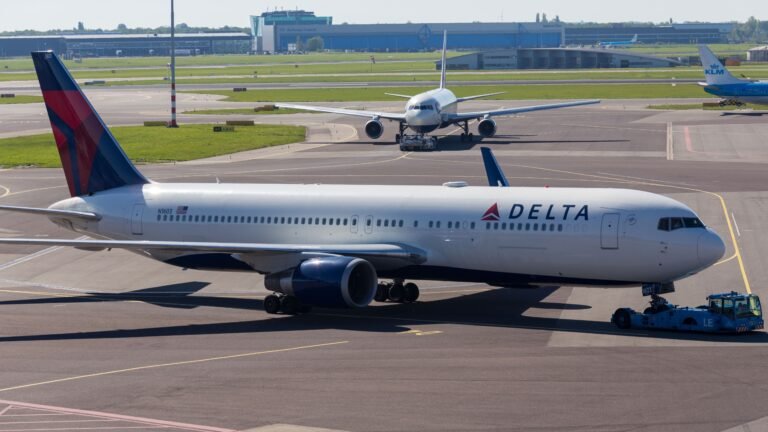Delta Ends New York to Brussels Route
Delta Air Lines will discontinue its nonstop flights from New York’s JFK Airport to Brussels on January 6, 2026, ending a service that lasted 34 years. The airline will instead focus on introducing year-round flights from Atlanta, beginning March 8, 2026, following a brief pause in service.
Reason for the Change
During the summer, Delta experienced its weakest performance in Europe, driven by a softer economic demand. The peak travel season has shifted to June and the fall months, which has led to network adjustments, including the decision to change the Brussels route.
The New York to Brussels Route History
The New York to Brussels service, which began in 1991, has traditionally used Boeing 767-300ER aircraft. While the service was briefly paused during the pandemic, it has since resumed consistently. This marks Delta’s second transatlantic reduction in New York flights within a year, following the suspension of its Munich route, another Lufthansa Group hub.
Atlanta Focus and Partner Collaborations
Delta aims to better align its services with customer demand by shifting major operations to Atlanta. Although Brussels will lose its direct connection to New York, passengers can use partners like KLM for routes to Amsterdam. Additionally, Air France and Virgin Atlantic provide alternative connections to Brussels from cities like Paris and London, respectively. Other airlines such as Brussels Airlines and United Airlines continue to offer services to the region from Newark via a joint venture.
Delta’s Summer Performance in Europe
Delta’s executives noted on September 11, 2025, that Europe was its lowest-performing region for the third quarter, coinciding with much of the summer. President Glen Hauenstein highlighted that high-end leisure travel to Europe no longer peaks in July and August, leading to a stronger upturn in bookings in October. Despite weakened demand in the economy cabin, premium cabins performed well, contributing significantly to profits.
Economic Shifts and Operational Adjustments
As travelers look for value amid rising fares, demand now extends from April to October, reducing pressure on peak summer capacity. This shift allows airlines to maintain stable operations and staffing by spreading demand throughout the seasons.
Competitive Pressures in Brussels
Brussels, a key Lufthansa Group hub, poses competitive challenges for Delta. Despite adjustments, Delta continues to maintain Europe as a profitable market, posting a net income of $4.7 billion in 2024. The airline will resume Brussels services via Atlanta, enhancing connectivity from its largest hub and potentially increasing access to the Southern U.S.
Future Outlook
Delta aims to rationalize capacity economically while fostering premium growth. By adapting its routes to match demand patterns, as seen with the Brussels shift, Delta seeks to ensure sustained leadership across transatlantic routes. The airline navigates current European challenges by leveraging its premium strengths and corporate sales rebound.

